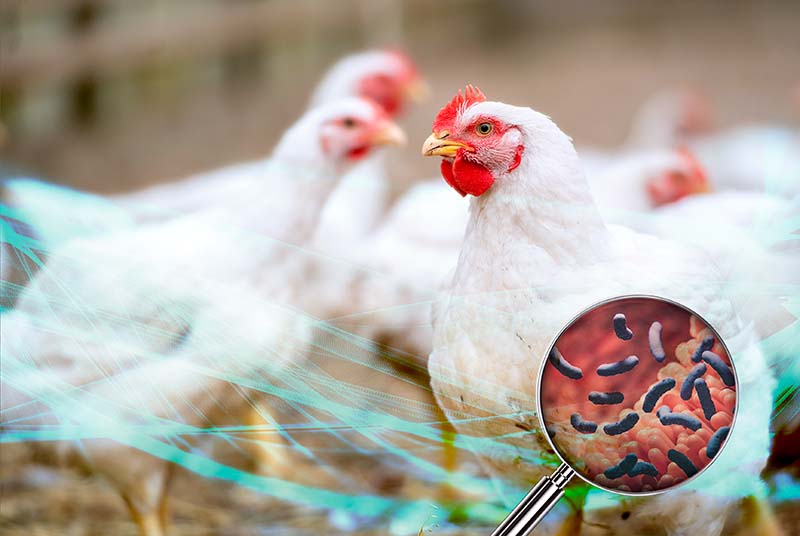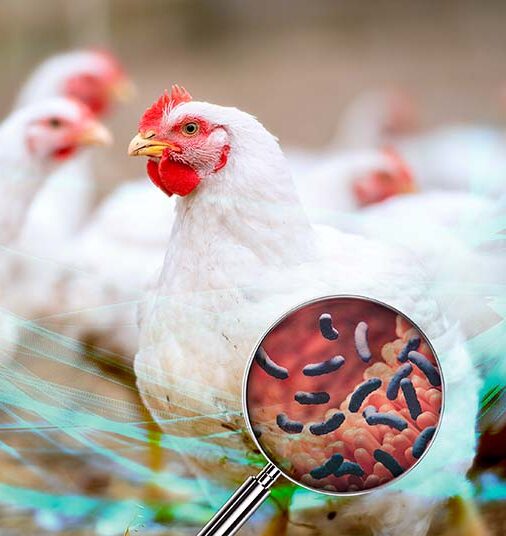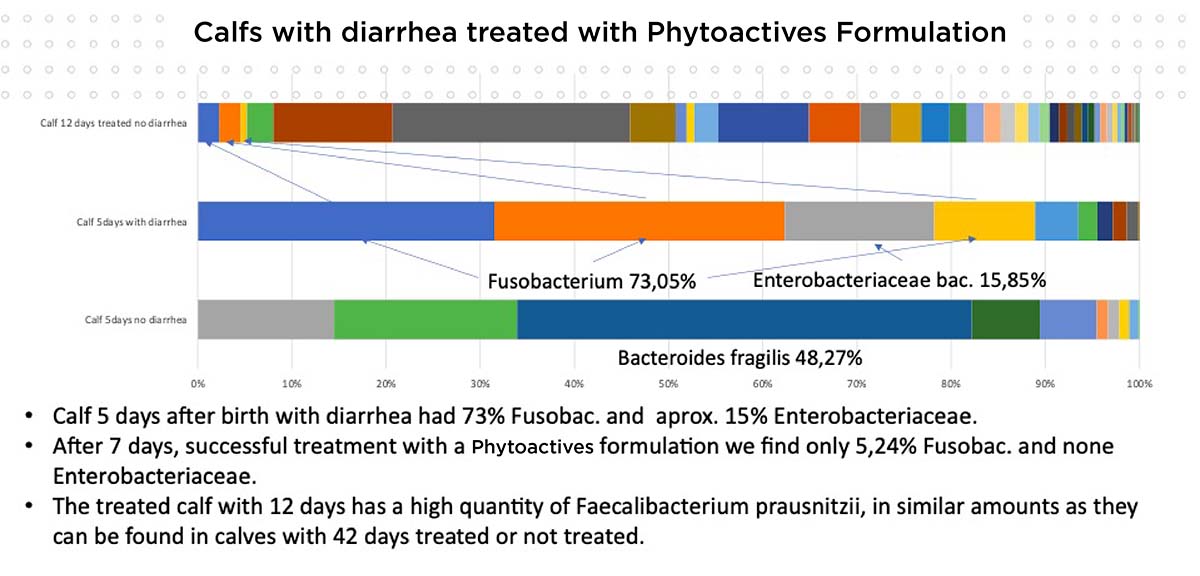MICROBIOTA


The Microbiota is the set of microorganisms naturally present in the mucous membranes and performs several positive functions to the health and performance of animals,
being inherent and proper to each species and animal category, with peculiar and necessary functions for its survival. To this end, these populations must be species-rich, balanced among themselves in order to promote:
• Better digestion
• Mucosal protection
• Absorption of nutrients
Avoiding dysbiosis that can cause infections that culminate in diseases, in various systems of the animal organism, especially the digestive system.
• Unbalanced microbiome
• Excessive use of antibiotics
• Contact with potentially
pathogenic organisms
Exacerbated growth of certain bacterial genera, which are responsible
for triggering the production of harmful substances, generating in animals:
• Inflammations
• Diarrhea
• Excessive mucus production
• Bleeding
• Fever
• Enterotoxemia
Among other well-known and varied
symptoms common in bacterial infections
Tecphy has in its essence the promotion of animal health and productivity by modulating a positive Microbiota.
Allowing animals a healthier and more stable organism and production environment, so that they can have a greater well-being and a better expression of their productive potential, with the mitigation and/or exclusion of the use of traditional antibiotics, which generate in addition to resistant bacteria, a lower diversification of the Microbiota, impoverishing the microbiome and altering its natural functioning.
Tecphy's product lines use blends of Phytoactives extracted from the essential oils of aromatic plants and combined with nutrients, plant extracts, probiotic and prebiotic organic acids, properly balanced. And among its differentials are:
• Soluções com formulações únicas
• Solutions with unique formulations
• Products carefully thought out and evaluated by experts
• Modulation of Respiratory, Ruminal, Intestinal, Mamarian and Environmental
• Microbiotas
• Meets aquatic and terrestrial species
• Promotion of animal health and productivity, with scientifically proven preventive, curative and growth-promoting functions
• Rational use of antibiotic therapy
Microbiota Analysis
To prove the effects of the products on Microbiota, Tecphy has a team that conducts research in partnerships with universities and private properties, where the animals receive supplementation according to the species and challenge observed. Fecal samples or various swabs are collected for microbiota modulation analysis by cutting-edge methodologies, using DNA sequencing and genomic study.
Ao realizar os estudos sobre a genômica da
Microbiota dos animais, podemos:
• Conhecer e avaliar a composição da Microbiota
• Identificar microrganismos patogênicos
• Detectar disbioses que geram moléstias
• Reconhecer o efeito de drogas
• Apontar a ação dos produtos da Tecphy sobre a composição do microbioma


For this purpose, after purification and DNA sequencing, the data are analyzed by a rich database of information about microorganisms in bioinformatics software, thus drawing a microgenetic and microbiological profile of each of the samples.
After this evaluation, the Microbiota data are related to the zootechnical rates and/or the absence of symptoms after supplementation with Tecphy products, technical - scientific reports are generated and elucidated with this information based on science, the synergistic and beneficial effects of the products on the Microbiota and animal productivity.
Case Study
In the table below, we can observe one of the results obtained in a study on a particular property, with the use of a blend of Phytoactives on the Intestinal Microbiota of neonate and symptomatic calves with diarrhea.

In this study, dairy calves with 5 days of birth presented intense diarrhea. Feces samples were collected in these symptomatic calves and also in healthy animals of the same property, with the same age so that their results could be compared. Supplementation with Tecphy's phytoactive blend, BEZERROSAN, was started, at the recommended dose for the category, for three consecutive days. After 7 days, no supplemented animals showed diarrhea and 12 days after ingestion of BEZERROSAN, stool samples were again taken for a new evaluation of the Microbiota.
The results can be seen in the table above. Calves with diarrhea showed an evident dysbiosis, a possible cause of the diarrhea, with a prevalence of 73.05% of bacteria of the genus Fusobacterium spp. and 15.85% of bacteria from the family Enterobacteriaceae. These groups of bacteria are natural inhabitants of animal intestines, but the high prevalence of only a few groups of bacteria is not desired in the healthy and stable Microbiota needed for animal health and productivity, denoting a well-characterized dysbiosis. In unbalanced quantities, the amount of toxins they produce and the interspecific competition with bacteria beneficial to digestion cause diarrhea.
At 12 days after treatment, the results observed in the healing of symptoms are justified by the modulation of the Microbiota evaluated. This date shows a higher richness of genera and species of microorganisms and that the populations of Fusobacterium spp. and bacteria from the family Enterobacteriaceae, although still present, are in balance and no longer affect the health and productivity of the calves.